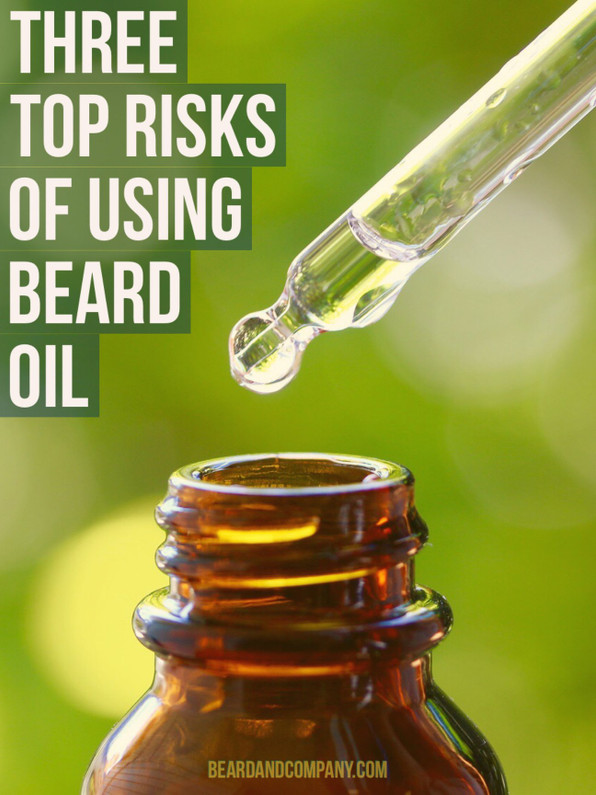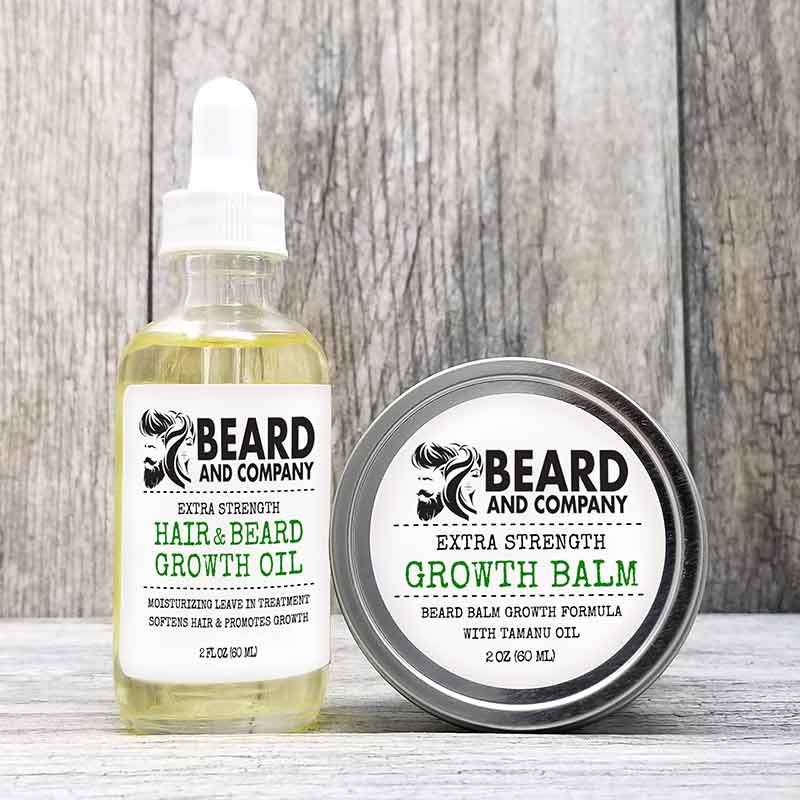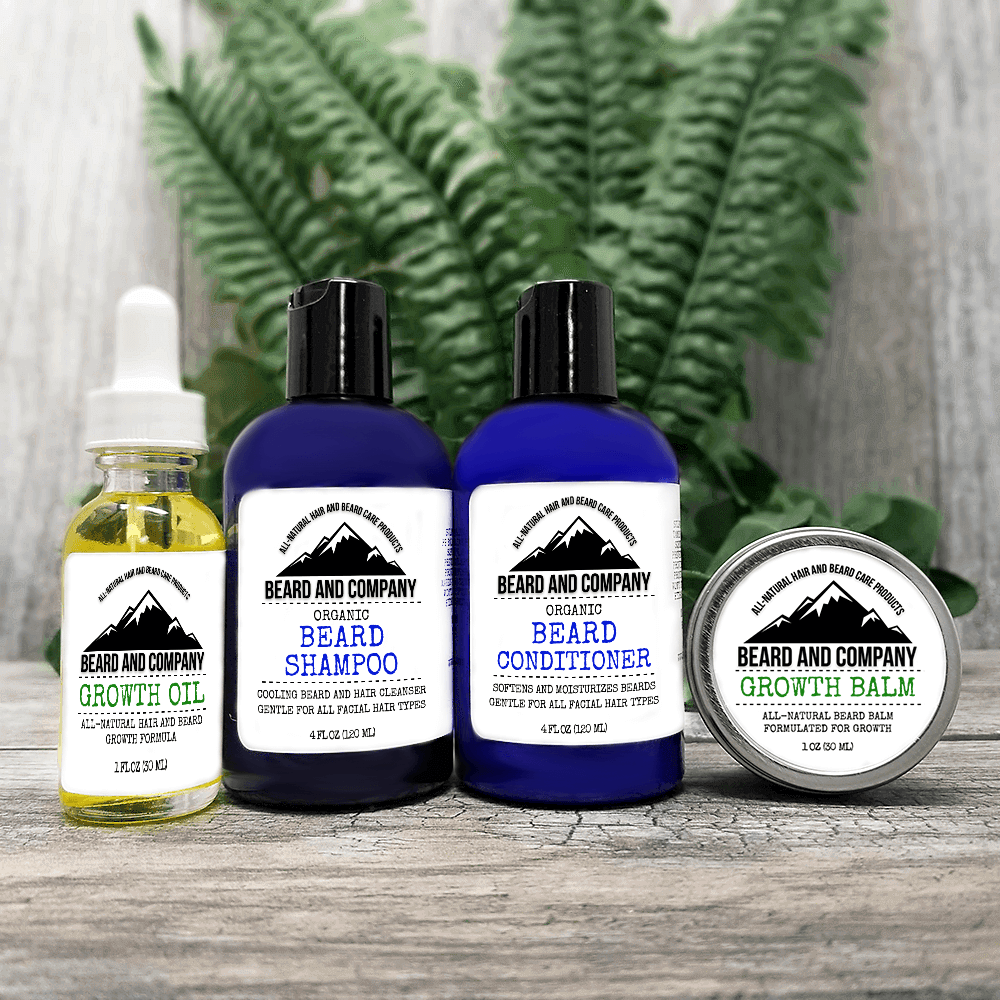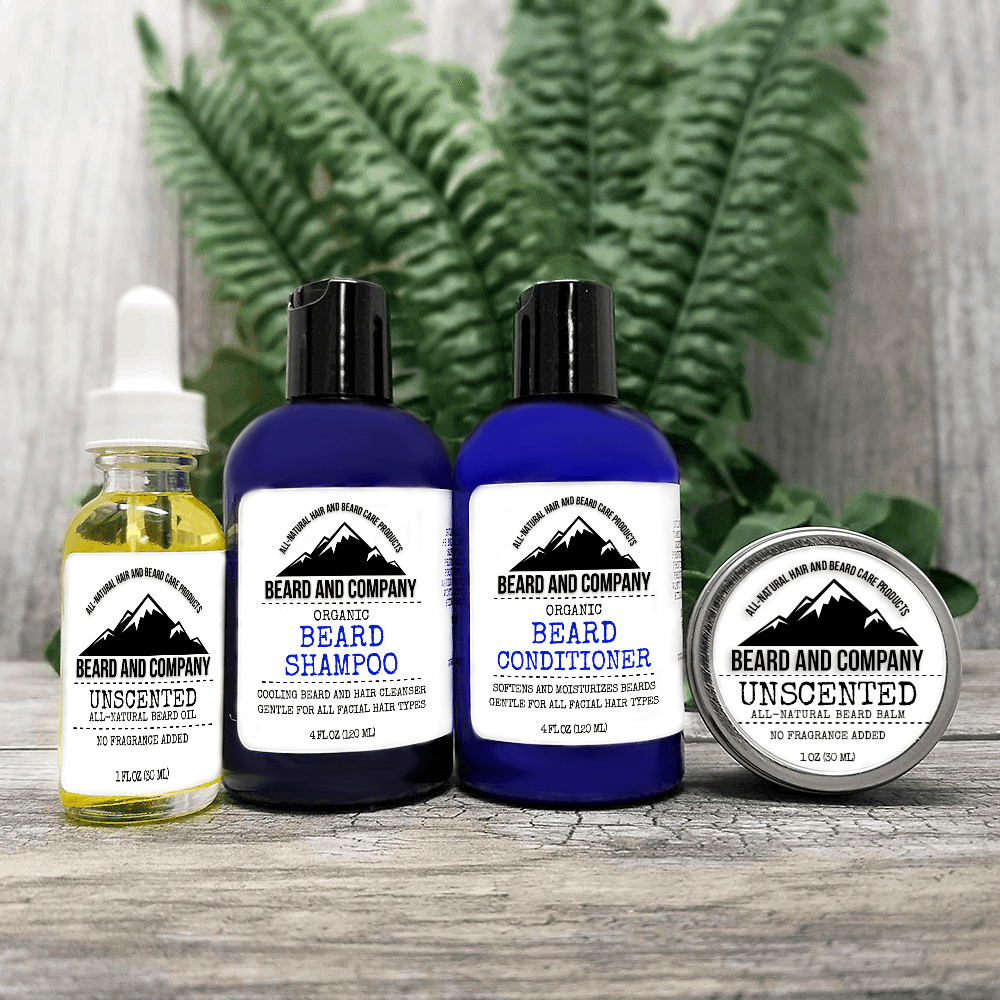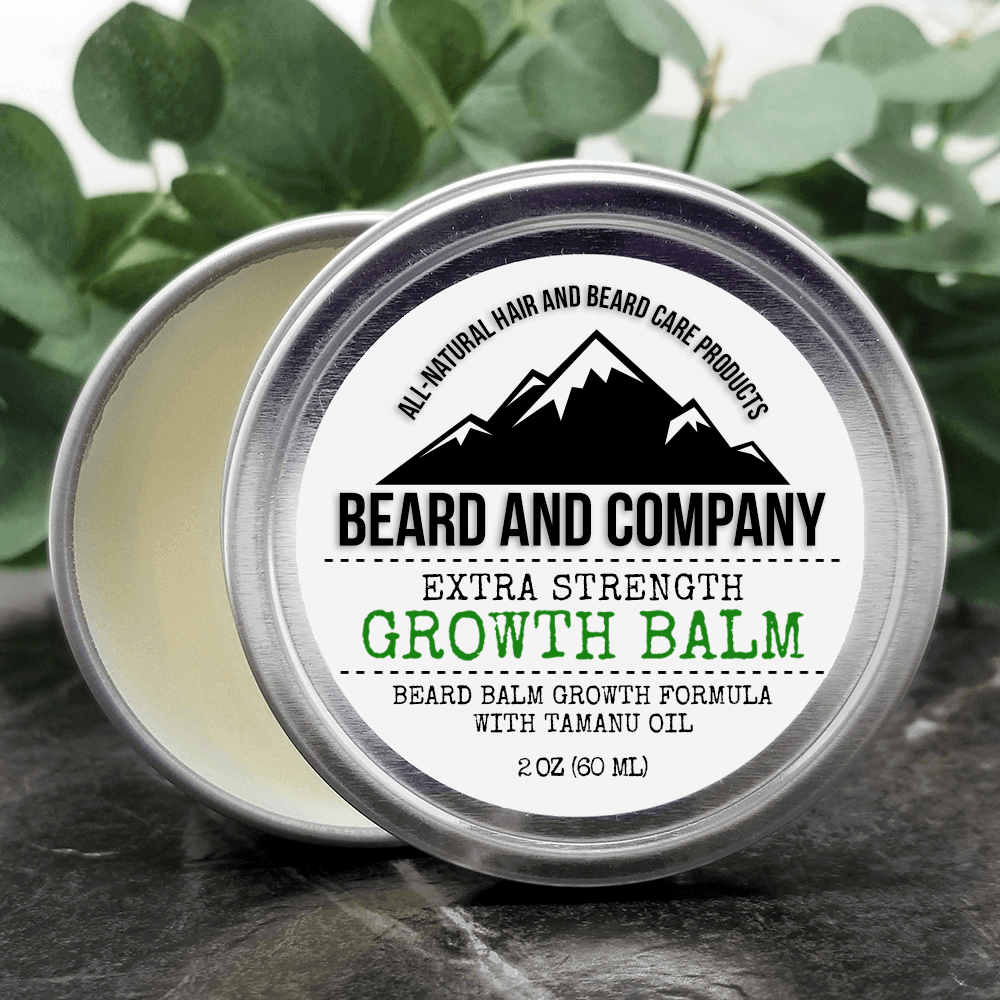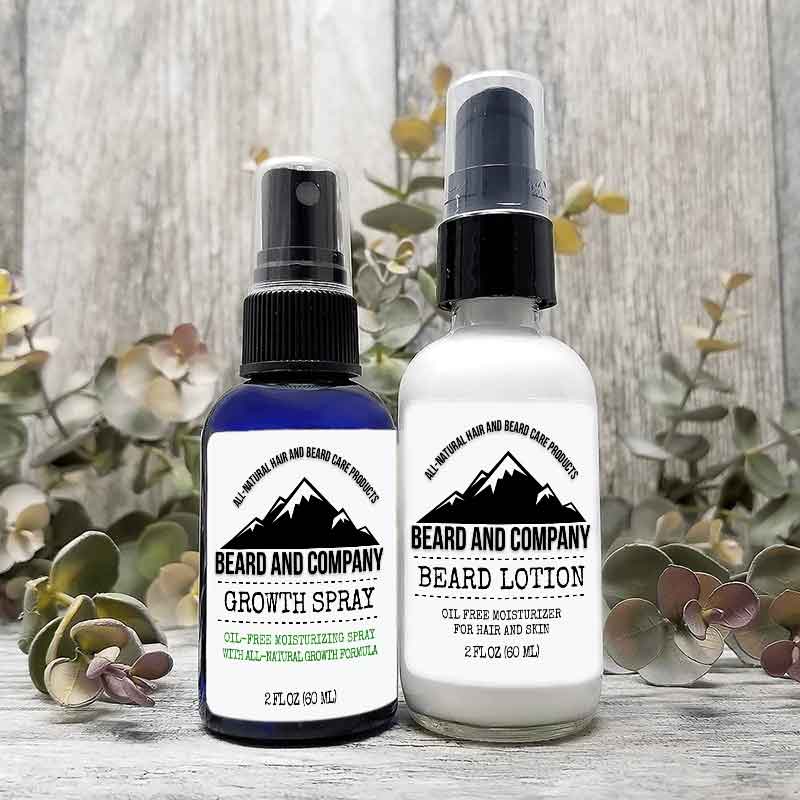The Disadvantages of Using Beard Oil: Side Effects and Risks
It Matters What You Put in Your Beard
What is beard oil and what does it do?
It seems like beard oil is everywhere today. If you've ever Googled how to grow or repair your beard, chances are you encountered dozens of stores, articles, and ads for the stuff.
Before talking about the possible risks of using beard oil we need to talk about what it is and what it does.
Beard oil is a facial hair and skin conditioning oil. Ours is a blend of different carrier oils like almond oil, jojoba oil, castor and more. Beard oil comes in a variety of colors, sizes, scents and ingredients.
When should I use beard oil?
The great thing about a quality beard oil is that there’s no wrong time to use it. What we have found is using it right after a shower or washing your beard is ideal for a few reasons.
Warm water opens up your pores which allows beard oil to penetrate your skin and absorb more easily. The same goes with your hair. This is the best time to use our growth formula oils or any of our others such as repair and protect.
Once it’s soaked in properly like so, it leads to a less greasy feeling throughout the day.
Extra Strength Beard Growth Oil and Balm Kit
Using beard oil during different beard growth stages
Since we use non-comedogenic oils (oils that will not break you out or clog your pores) there is no wrong stage to use our beard oil specifically. Beard oil is great for any beard stage from 5-o’clock stubble (great for dry skin during these early stages) all the way up to Gandolf-length beards. The only caveat is that longer beard require more product. This is when balm, sprays and washes are a great choice to add to your routine.
Usually only a few shakes into your palms and then massaged into your beard is enough to last the day. Using a high quality beard oil will keep your beard healthy, shiny and full of nutrients to keep it from breaking off. It should also help your skin underneath grow your beard lusciously. A good beard oil should not break your skin out either.
From beard blogs to Pinterest and from YouTube and beyond, it seems like everyone recommends beard oil. You need to know what to look for and what to avoid.
But is beard oil right for YOU? Is there anything else you should use instead?
Here are a few important things to know about beard oil before you buy.
Could your beard oil be hazardous to your health?
The short answer is no.
The long answer is that it depends on many individual factors such as allergies, medical conditions and quality/expiry of ingredients.
Using beard oil or other beard products generally do not cause concern for its users. The main thing to look for is what you are allergic to. A small percentage of people are allergic to almonds but that does not necessarily mean you will show any signs of allergies if you use almond oil.
It's smart to test a very small amount or not use it at all if you do have an allergy to almond oil, though. By special request, we can make beard care products without almond oil. Just ask!
Possible Allergic Reactions
You may have heard that pure essential oils do not cause allergic reactions. However, according to Oleg Maksimov of the American College of Healthcare Sciences, there is "...a connection between the oxidation of essential oil constituents and their ability to trigger allergic reactions". "To put it simply," says Maksimov, "spoiled (oxidized) essential oils have a greater risk of triggering an allergic reaction."

Man experiencing allergic reaction.
So what causes the oils to oxidize and become rancid?
The medicinal components of essential oils come from active constituents like "...monoterpenes, sesquiterpenes, monoterpenoids, and sesquiterpenoids. When monoterpenoids and sesquiterpenoids are exposed to air, they tend to undergo the following oxidation process: alcohol is transformed to aldehyde, aldehyde may turn into acid. Sound familiar? This is the same process responsible for spoiling wine and turning it to vinegar when it is accidentally exposed to air during storage", according to Maksimov.
Huh?!
Most essential oils stored properly will not cause issues on their own. Improperly stored *anything* is usually never good for you though.
Essential oils must be stored in a cool, dark place away from light sources with a tightly closed lid. If your beard oil was made with essential oils that have been exposed to light or air, it is likely that oxidation has begun and you could be at risk for an allergic reaction.
It’s very rare to be allergic to specific essential oils that have been properly stored.
Citrus oils, which are commonly found in many beard oil formulas due to their many health benefits, are photosensitive and may cause your skin to become more sensitive to UV light.
If you have a pale complexion that burns easily, you may want to consider an oil-free beard product instead. You will find some featured products at the bottom of this post.

According to wellnessmama.com, "I always include a caution on my recipes that include citrus oils that they may make the skin more sensitive to the sun. These oils have certain constituents that can make the skin more sensitive to UV light and can lead to blistering, discoloration of the skin or burning more easily from minor sun exposure. Though the risk of photosensitivity or phototoxicity varies based on the way the oil was distilled, oils generally considered photosensitive are: orange, lime, lemon, grapefruit, and bergamot."
The Risks of Beard Oil with Synthetic Fragrances
Many companies claim that their beard oil is "all-natural". But how do you know if it's true? Check the label. If you find "fragrance", or "fragrance oil" listed in the ingredients, that means the beard oil contains synthetic fragrance oils that are not natural and not healthy.
According to safe cosmetics advocate Ava Anderson, "These chemicals include: benzene derivatives, aldehydes, phthalates, and a slew of other known toxins that are capable of causing cancer, birth defects, nervous-system disorders and allergies—some of which are cited on the EPA’s hazardous waste list."
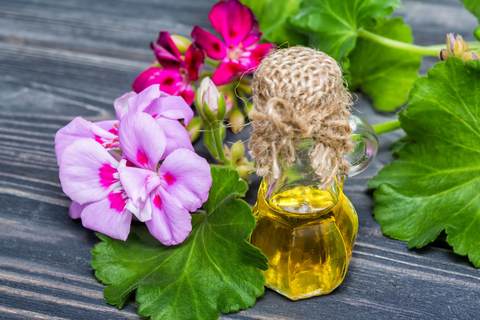
Geranium oil has a natural, rose-like fragrance.
"The Environmental Working Group (EWG) reports that, while many popular perfumes, colognes and body sprays contain trace amounts of natural essences, they also typically contain a dozen or more potentially hazardous synthetic chemicals, some of which are derived from petroleum. To protect trade secrets, makers are allowed to withhold fragrance ingredients, so consumers
can’t rely on labels to know what hazards may lurk inside that new bottle of perfume," says emagazine.com.
These materials will dry out your skin and beard, resulting in split ends and slow growth. There have been many cases where a person thinks they are allergic to an oil but it turns out it’s the fragrance itself.
Safe All-Natural Beard Products
Beard and Company's all-natural Beard Growth Kit with gentle beard shampoo and conditioner, beard growth oil, and beard growth balm.
Beard and Company's unscented beard grooming kit is made with safe organic ingredients that don't clog pores or weigh beards down.
Formulated with premium shea butter and a blend of castor, jojoba, tamanu, almond oils, our Extra Strength Beard Growth Balm is not only incredibly soothing to facial hair and skin but it will make your beard grow faster too.
Tired of beard oil? Check out our oil-free beard kit with our lightweight Beard Growth Spray and Beard Lotion set. The spray is lightweight and refreshing while the lotion provides deep moisture and hydration to your beard without leaving it feeling greasy or heavy.
Conclusion
While beard oil is a great way for most men to moisturize their beards, it's not for everyone. If you believe you may be at risk for allergic reactions, photo-sensitivity, or any other health issue, we recommend not only using our gentle shampoo and conditioner for your beard needs but also using oil-free beard care products and unscented beard oil and beard balm.
Knowing what you are allergic to is really important.
We use oils that typically have very low allergen rates. For example even if you are allergic to almonds, you may not be sensitive to almond oil.
But it’s always a good idea to test first on a small area before applying a recommended amount.
Recent Posts
-
The Best Beard Puns and Jokes that Really Grow on You
Growing a beard is no funny business but once you have those luscious locks of lovely facial hair …Mar 31st 2023 -
The Ultimate Guide to Halloween Costumes for Guys with Beards
Can you believe it's autumn already? Before you know it, the leaves will turn shades of yellow …Aug 25th 2021 -
Beard Oil or Beard Balm? The Differences & Why You Need Both
There is a time and place for everything and that is also the case with beard care products. Actu …Aug 1st 2021

